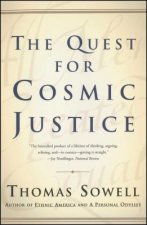
Kod: 04903635
German Stranger
Autor William H. F. Altman
Leo Strauss's connection with Martin Heidegger and Carl Schmitt suggests a troubling proximity to National Socialism but a serious critique of Strauss must begin with F. H. Jacobi. While writing his dissertation on this apparently ... więcej
- Język:
 Angielski
Angielski - Oprawa: Twarda
- Liczba stron: 618
Wydawca: Lexington Books, 2010
- Więcej informacji o książce

235.17 €

Dostępna u dostawcy w małych ilościach
Wysyłamy za 11 - 15 dni
Potrzebujesz więcej egzemplarzy?Jeżeli jesteś zainteresowany zakupem większej ilości egzemplarzy, skontaktuj się z nami, aby sprawdzić ich dostępność.
Dodaj do schowka
Zobacz książki o podobnej tematyce
-

Grandma and Me at the Flea
13.48 € -5 % -

Hinter glasernen Mauern
19.92 € -7 % -

El corazón del bosque
22.54 €
Bon podarunkowy: Radość gwarantowana
- Podaruj bon o dowolnej wartości, a my się zajmiemy resztą.
- Bon podarunkowy dotyczy całej naszej oferty.
- Możesz wydrukować elektroniczny bon z e-maila a następnie przekazać go obdarowanemu.
- Ważność bonu wynosi 12 miesięcy od daty wystawienia.
Więcej informacji o German Stranger
Za ten zakup dostaniesz 591 punkty
 Opis
Opis
Leo Strauss's connection with Martin Heidegger and Carl Schmitt suggests a troubling proximity to National Socialism but a serious critique of Strauss must begin with F. H. Jacobi. While writing his dissertation on this apparently Christian opponent of the Enlightenment, Strauss discovered the tactical principles that would characterize his lifework: writing between the lines, a faith-based critique of rationalism, the deliberate secularization of religious language for irreligious purposes, and an "all or nothing" antagonism to middling solutions. Especially the latter is distinctive of his Zionist writings in the 1920s where Strauss engaged in an ongoing polemic against Cultural Zionism, attacking it first from an orthodox, and then from an atheist's perspective. In his last Zionist article (1929), Strauss mentions "the Machiavellian Zionism of a Nordau that would not fear to use the traditional hope for a Messiah as dynamite." By the time of his "change of orientation," National Socialism was being led by a nihilistic "Messiah" while Strauss had already radicalized Schmitt's "political theology" and Heidegger's deconstruction of the ontological Tradition. Central to Strauss's advance beyond the smartest Nazis is his "Second Cave" in which he claimed modern thought is imprisoned: only by escaping Revelation can we recover "natural ignorance." By using pseudo-Platonic imagery to illustrate what anti-Semites called "Jewification," Strauss attempted to annihilate the common ground, celebrated by Hermann Cohen, between Judaism and Platonism. Unlike those who attacked Plato for devaluing nature at the expense of the transcendent Idea, the emigre Strauss effectively employed a new "Plato" who was no more a Platonist than Nietzsche or Heidegger had been. Central to Strauss's "Platonic political philosophy" is the mysterious protagonist of Plato's Laws whom Strauss accurately recognized as the kind of Socrates whose fear of death would have caused him to flee the hemlock. Any reader who recognizes the unbridgeable gap between the real Socrates and Plato's Athenian Stranger will understand why "the German Stranger" is the principal theoretician of an atheistic re-enactment of religion, of which genus National Socialism is an ultra-modern species.
 Szczegóły książki
Szczegóły książki
Kategoria Książki po angielsku Society & social sciences Politics & government Central government
235.17 €
- Pełny tytuł: German Stranger
- Podtytuł: Leo Strauss and National Socialism
- Autor: William H. F. Altman
- Język:
 Angielski
Angielski - Oprawa: Twarda
- Liczba stron: 618
- EAN: 9780739147375
- ISBN: 0739147374
- ID: 04903635
- Wydawca: Lexington Books
- Waga: 1061 g
- Wymiary: 238 × 164 × 42 mm
- Data wydania: 22. November 2010
Ulubione w innej kategorii
-

How Much is Enough?
12.17 € -22 % -

Laws of Power
31 € -23 % -

Rise and Fall of the Great Powers
18.01 € -24 % -

Weapons of Math Destruction
12.37 € -16 % -

Vision of the Anointed
16.10 € -23 % -

Capital in the Twenty-First Century
40.16 € -17 % -

Last Hours of Ancient Sunlight: Revised and Updated Third Edition
16 € -16 % -

Wealth, Poverty and Politics
33.01 € -18 % -
![What Has the Government Done to Our Money? [Reprint of First Edition] What Has the Government Done to Our Money? [Reprint of First Edition]](https://media.libris.to/jacket/08800577t.jpg)
What Has the Government Done to Our Money? [Reprint of First Edition]
6.63 € -5 % -

Radical Markets
29.89 € -14 % -

Kissinger
19.22 € -28 % -

Countdown
32.51 € -

Carbon Democracy
16 € -23 % -

Break It Up
24.25 € -21 % -

Political Science Basics
59.29 € -

Plot to Scapegoat Russia
13.28 € -33 % -

Handbuch Bundesverfassungsgericht im politischen System
161.88 € -2 % -

Regulating Cannabis
9.35 € -28 % -

Accessory to War
26.87 € -12 % -

Austerity
13.68 € -24 % -

The Quest for Cosmic Justice
13.48 € -29 % -

Soul at Work
16.10 € -15 % -

Five Stages of Collapse
19.42 € -24 % -

Public Opinion by Walter Lippmann
13.98 € -

Creating Public Value
47.61 € -12 % -

Celtic Tiger in Collapse
61.30 € -

One Day, All Children...
15.59 € -13 % -

Chasing the Scream
14.49 € -27 % -

New Tsar
11.57 € -19 % -

Breaking the Vicious Circle
42.37 € -

Cortical Visual Impairment - Approach to Assessment
86.17 € -6 % -

Preserving Biodiversity
9.45 € -

In Defense of Degrowth
25.56 € -

Barack Obama Speeches
19.32 € -25 % -

Blowback
16.50 € -

Oxford Handbook of the Welfare State
41.87 € -7 % -

Columbine High School Massacre
29.39 € -

Confessions of a Greenpeace Dropout
44.99 € -

Production of Money
11.37 € -14 % -

American Age
67.44 € -5 % -

Chickenshit Club
16.90 € -19 % -

American Power And The New Mandarins
24.66 € -

Monetary Nationalism and International Stability
13.28 € -

Obama and the Middle East
16.90 € -19 % -

Millipedes and Moon Tigers
31.80 € -

Understanding E-Government in Europe
72.28 € -

Global Warming Scam
19.22 € -19 % -

Is Democracy Failing?
13.58 € -26 % -

What's Wrong with Protectionism
34.12 €
Osobní odběr Bratislava a 2642 dalších
Copyright ©2008-24 najlacnejsie-knihy.sk Wszelkie prawa zastrzeżonePrywatnieCookies


 Vrácení do měsíce
Vrácení do měsíce Zdarma od 49.99 €
Zdarma od 49.99 € 02/210 210 99 (8-15.30h)
02/210 210 99 (8-15.30h)